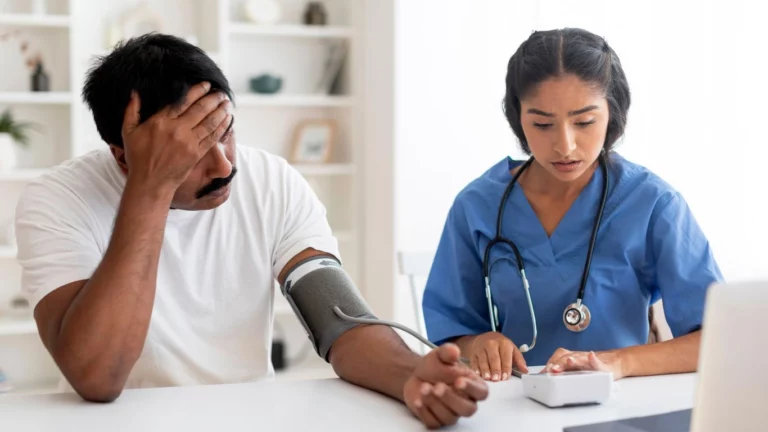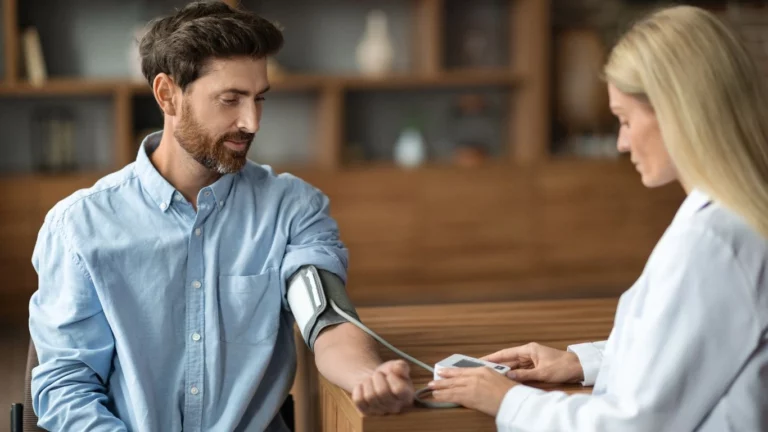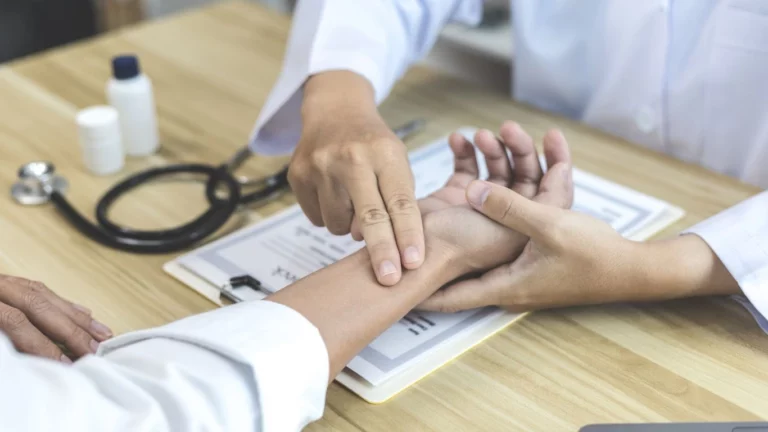Can Dehydration Cause High Pulse Rate and What to Do About It
It’s easy to overlook how much our bodies rely on water. Dehydration doesn’t always show up with dramatic symptoms. Sometimes, it’s subtle—a dry mouth, a bit of fatigue, or a rapid heartbeat. That last one might catch you off guard. If your pulse seems faster than usual, and you’re feeling off, you might wonder: can dehydration cause a high pulse rate?
The short answer is yes—it can. The body needs adequate fluids to function properly. When those levels drop, even slightly, the heart may have to work harder to circulate blood. That extra effort can show up as a higher pulse.
Understanding how this happens—and knowing when it’s a sign of something more serious—can help you stay safe, especially during hot weather, illness, or intense physical activity. Let’s take a closer look.
Why Dehydration Affects Heart Rate
Dehydration happens when the body loses more fluids than it takes in. Water makes up a large portion of our blood. So, when fluid levels drop, the volume of blood in circulation decreases. This makes it harder for the heart to pump efficiently.
In response, the heart speeds up to keep blood—and the oxygen and nutrients it carries—moving through the body. That’s where the elevated pulse comes in. It’s a natural reaction, but it can be uncomfortable or even dangerous if left unaddressed.
Signs and Symptoms
Sometimes, a high pulse is the first sign something is off. But dehydration usually comes with other symptoms too. Paying attention to these can help you catch it early:
- Dry mouth or sticky feeling in the mouth
- Feeling thirsty, even after drinking water
- Fatigue or a sense of weakness
- Dizziness, especially when standing up
- Dark yellow urine or decreased urine output
- Headache
- Cool or dry skin
- Rapid breathing
- Muscle cramps
If you notice a rapid heart rate along with these signs, your body may be telling you it needs hydration—urgently.
Causes of Dehydration
There are many reasons someone might become dehydrated. Understanding the cause can help prevent it from happening again. Here are some of the most common:
- Not drinking enough fluids – This often happens during busy days or in cold weather when you don’t feel as thirsty.
- Excessive sweating – Whether from exercise, hot temperatures, or fever, sweating causes fluid loss.
- Illness – Vomiting, diarrhea, and fever can quickly deplete fluids and electrolytes.
- Medications – Diuretics and some blood pressure medications increase urination, which can lead to dehydration.
- Underlying health conditions – Diabetes, kidney disorders, and adrenal issues may affect fluid balance.
- Alcohol consumption – Alcohol is a diuretic and can cause the body to lose more fluids than it takes in.
How to Check Your Pulse
It’s helpful to know how to check your heart rate. You can find your pulse on the inside of your wrist or side of your neck. Use your index and middle finger—not your thumb—to feel it.
Count the beats for 30 seconds and multiply by two. A typical resting pulse for adults is 60 to 100 beats per minute. If yours is consistently above 100 and you feel unwell, dehydration could be one factor to consider.
When to Get Help
Most mild cases of dehydration can be reversed by drinking fluids and resting. But sometimes, it’s more serious. You should seek medical attention if you notice any of the following:
- Persistent rapid heartbeat that doesn’t slow down after resting
- Confusion or trouble concentrating
- Fainting or feeling like you might faint
- No urine for more than eight hours
- Extreme thirst with inability to keep fluids down
- Signs of heat exhaustion or heat stroke
In these cases, you may need IV fluids or further evaluation to rule out other underlying conditions.
Who’s at Higher Risk?
While dehydration can affect anyone, some people are more vulnerable to its effects—including high pulse rate. This includes:
- Infants and young children
- Older adults, especially those with chronic conditions
- People with heart conditions or arrhythmias
- Athletes and those with high physical activity levels
- People living in hot or humid climates
If you or a loved one falls into one of these groups, staying hydrated is even more critical.
Treatment and Prevention
The first step to treating dehydration is simple: drink fluids. But not just any fluid will do. Water is best, but in cases of more significant fluid loss, drinks with electrolytes can help restore balance more effectively.
Here are a few things that can support rehydration and keep your heart rate stable:
- Drink small sips frequently rather than large amounts all at once
- Include oral rehydration solutions (ORS) if needed
- Avoid caffeine and alcohol until you’re rehydrated
- Rest in a cool, shaded, or air-conditioned space
- Monitor your pulse and symptoms as you rehydrate
Prevention is just as important. Make a habit of drinking water throughout the day, not just when you’re thirsty. Carry a refillable bottle and try to pay attention to your body’s early signals. Eating water-rich foods like cucumbers, melons, and oranges can also support hydration.
Long-Term Considerations
If you find that your pulse frequently spikes or you become dehydrated easily, it may be worth checking in with a healthcare provider. Sometimes, chronic dehydration is tied to other medical issues that need attention.
Conditions like postural orthostatic tachycardia syndrome (POTS) or adrenal insufficiency can cause similar symptoms. So can some medications. Don’t ignore persistent symptoms—your body is always trying to communicate.
Final Thoughts
A high pulse rate can feel unsettling, but in many cases, the solution is within reach. Dehydration is a common trigger—and one that’s often overlooked. By staying aware of your fluid intake, recognizing early signs, and taking gentle steps to care for your body, you can support both your heart and overall well-being.
If you’re ever in doubt, reach out to a healthcare provider. They can help determine what’s going on and give you the peace of mind you need. Your health is worth that extra bit of care.

Dr. Gwenna Aazee is a board-certified Internal Medicine Physician with a special focus on hypertension management, chronic disease prevention, and patient education. With years of experience in both clinical practice and medical writing, she’s passionate about turning evidence-based medicine into accessible, actionable advice. Through her work at Healthusias.com, Dr. Aazee empowers readers to take charge of their health with confidence and clarity. Off the clock, she enjoys deep dives into nutrition research, long walks with her rescue pup, and simplifying medical jargon one article at a time.







